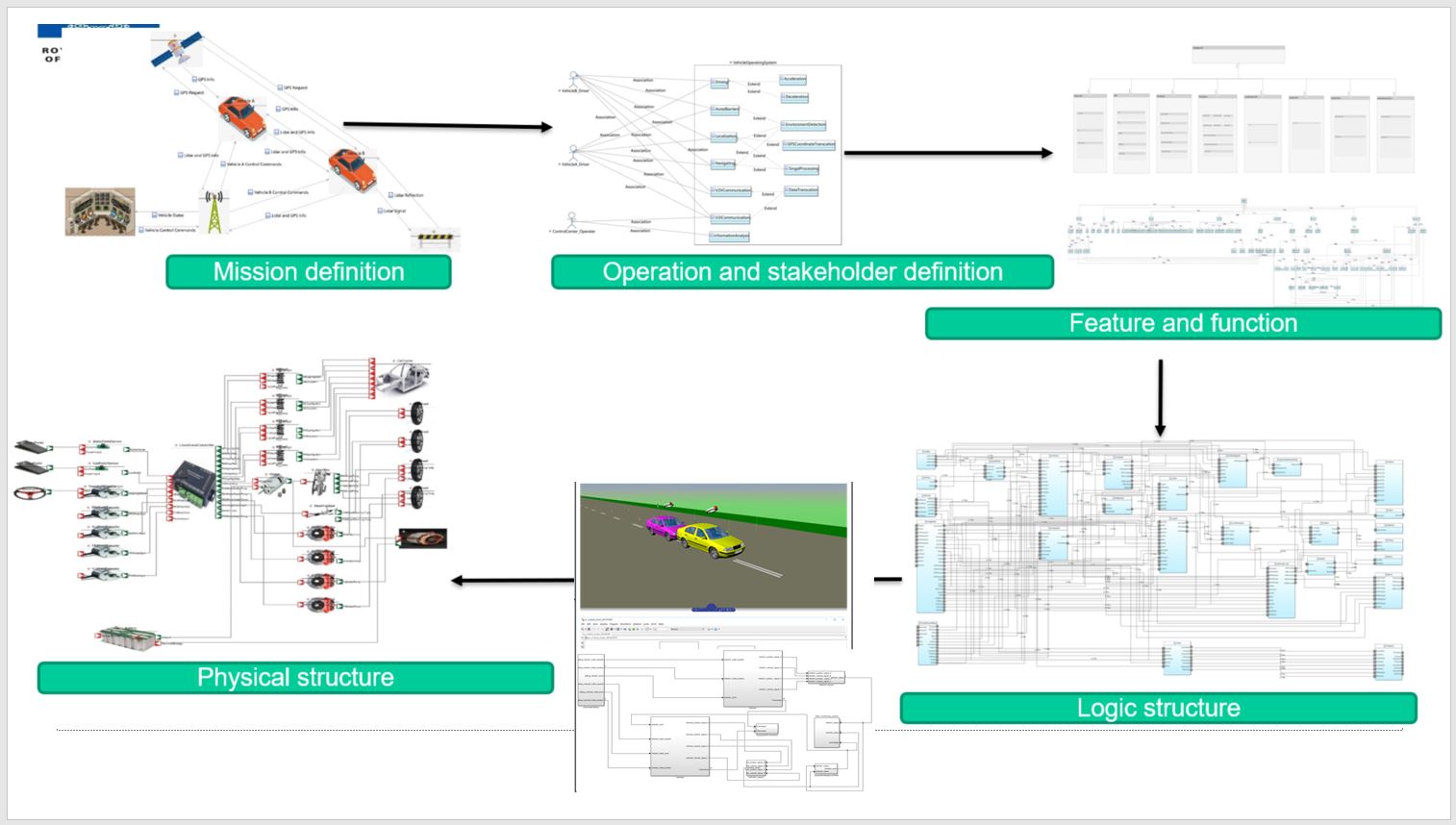Model-Based Systems Engineering
This area focuses on using modern Model-Based Systems Engineering (MBSE) techniques for integrated design, analysis and control of mechatronic systems, including architectural, requirement, behavioural, simulation and analysis models, along with modeling tool integration. System engineering emphasizes co-optimization for mechatronic systems. Key strengths include analysis and optimization of models, formal verification, safety and security, co-design of mechanical structures and control systems, design for sustainability, and exploitation of AI technologies.
An introduction to Model-Based Systems Engineering
This area focuses on utilizing modern Model-Based Systems Engineering (MBSE) techniques for the integrated design, analysis and control of mechatronic systems. The studied models include architectural models, requirement and specification models, behavioural and simulation models, analysis and testing models, and modeling tool integration. Additionally, the system engineering aspect emphasizes integrated design and co-optimization for mechatronic systems. Our key strengths in this area include analysis and optimization of architectural and development models, formal verification of systems with uncertainties, safety and security, co-design of mechanical structures, control systems, and embedded implementations, design for sustainability, and exploitation of AI technologies.
About the research
Our work with MBSE includes the following directions:
- Rigorous Systems Engineering develops a formal language framework for systems engineering of heterogeneous systems. A major focus is on contract theory and tools for reliability analysis and formal verification. The method especially considers systems with uncertainties and is supported by a software tool (SMP-tool).
- Applications and innovations of formal models and methods (e.g. finite state automata, hybrid automata, the Markov decision process, temporal logic, model checking and discrete-event systems) to facilitate the architectural modeling, analysis, and optimization of cyber-physical systems.
- Integrated design and co-optimization of mechatronic systems, including mechanical structure, control algorithms and embedded implementation.
- Model-based safety and security analysis based on industrial standards, such as ISO26262 and SOTIF.
- The integration of learning-based methods (e.g. deep reinforcement learning and automata learning) and traditional search-based methods (e.g. model checking and combinatorial optimization) for the verification, testing, optimization, and supervisory control of discrete-event processes.
- Automation of software integration, testing, deployment and operations (DevOps) through the product lifecycle.

Research roadmap
- Extend and refine research results on Rigorous Systems Engineering.
- Improve the studies on architectural modeling, analysis and optimization for autonomous vehicles and trustworthy cyber-physical systems.
- Integrate AI methods into our development process to make our methods efficient for large-scale problems with big data and uncertainties.
- Promote our own tools, both to the scientific community and to industrial users.
- Open the research direction on the integrated design and co-optimization of high performance and intelligent electric vehicles.
- Apply MBSE to new research areas through collaboration, such as intelligent transportation systems, smart manufacturing, and collaborative robotics.
